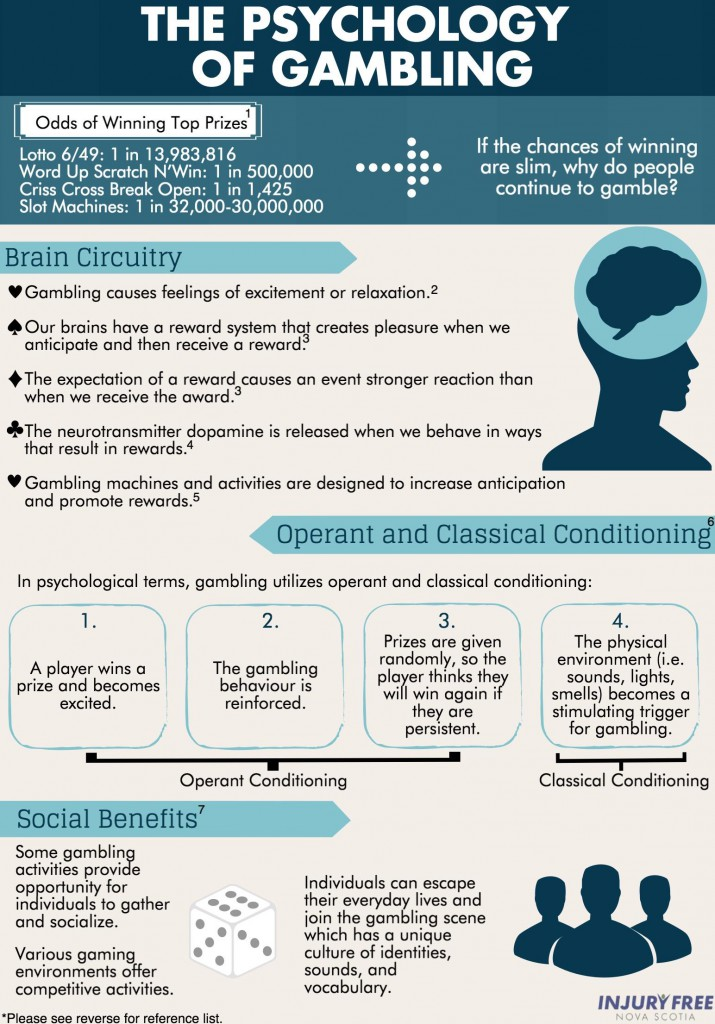Gambling behavior reveals a complex interplay of psychological traits, societal influences, and cultural perceptions that shape how individuals engage with risk. It encompasses not just the excitement of placing bets, but also deeper motivations rooted in human psychology and social dynamics. As we delve into the intriguing facts about gambling, we will uncover the nuances of gambling addiction, the thrill-seeking personality traits that accompany risk selection, and the significant role cultural attitudes play in shaping participation rates. Understanding these factors is essential, especially in an age where online gambling trends are transforming traditional practices and appealing to a new generation of players. Stay tuned as we explore how gambling behavior influences not only individual lives but also societal perspectives toward this longstanding pastime.
The study of gambling tendencies captivates researchers and casual observers alike, reflecting broader themes of risk-taking and behavioral patterns in society. Alternate terms like game playing, chance activities, or betting behaviors highlight a spectrum of engagement that transcends mere leisure. Cultural outlooks on gaming have evolved, with some viewing it as a social norm while others regard it with caution and stigma. In this discussion, we will not only uncover the psychological variables linked to these activities but also assess the impact of community influences and the prevalence of gambling addiction. Through a closer examination of contemporary gaming trends, especially in digital spaces, we can grasp the ever-shifting landscape of gambling behaviors and societal reactions.
Understanding the Psychology Behind Gambling Behavior
Gambling behavior is deeply intertwined with psychological factors that drive individuals to take risks. The thrill associated with winning has substantial implications for the brain, often resulting in a rush similar to that experienced through engaging in physical risk-taking activities. Gamblers seek that dopamine hit, which results from a win, creating a feedback loop of excitement and desire to continue gambling. This behavior is particularly notable in thrill-seekers who actively pursue high-stakes situations that elevate their adrenaline and create an intense emotional response. However, this can become problematic as the pursuit of excitement can lead to compulsive gambling and addiction, underscoring the need to understand the psychological underpinnings of gambling behavior better.
Moreover, the psychological allure of gambling extends to how individuals perceive risk. Gamblers are known to exhibit cognitive biases, such as the illusion of control or overestimating their chances of winning, which fuels their gambling tendencies. This skewed perception often leads to a lack of proper risk assessment, causing them to place larger bets or gamble in more dangerous scenarios. Addressing these psychological facets is crucial for developing effective interventions and prevention strategies aimed at curbing gambling addiction and promoting healthier gambling behaviors.
Cultural Influences on Gambling Behavior
The perception of gambling within various cultures significantly shapes gambling behavior. In regions where gambling is embraced, it often becomes a communal activity, with social norms supporting participation. Cultural acceptance can drive higher engagement rates, with individuals feeling encouraged to participate in gambling activities without the stigma associated with them. Conversely, in cultures where gambling is frowned upon or considered taboo, individuals may engage in such activities more privately or abstain altogether. This dichotomy reveals the essential role cultural context plays in understanding gambling behavior and its implications across different demographics.
Additionally, the cultural background can affect how gambling addiction is perceived and treated. In societies that view gambling as a moral failing, individuals may be less likely to seek help for gambling addiction, fearing social ostracism. This cultural perception can hinder access to resources and support, further entrenching compulsive behaviors. By examining gambling through a cultural lens, we can appreciate the diverse factors that influence gambling behavior, including acceptance, stigmatization, and the collective understanding of risk.
Frequently Asked Questions
What psychological factors influence gambling behavior?
Gambling behavior is significantly influenced by psychological factors such as thrill-seeking, dopamine release, and escapism. The excitement associated with potential wins triggers a dopamine rush in the brain, making gambling an appealing activity for many. This psychological draw can lead some individuals to gamble as a way to cope with stress, although it can also escalate into compulsive gambling behaviors.
How do cultural perceptions of gambling affect gambling behavior?
Cultural perceptions of gambling greatly shape gambling behavior across different societies. In cultures that embrace gambling as a social activity, individuals are more likely to participate frequently. Conversely, cultures that view gambling negatively tend to exhibit lower engagement levels. Understanding these cultural nuances is essential when addressing gambling issues, as they influence how individuals perceive risk and seek entertainment through gambling.
| Key Points | Description |
|---|---|
| Psychological Factors | Gambling is often driven by excitement and dopamine release, serving as escapism for individuals. |
| Risk-Taking Behavior | Gambling participants often exhibit risk-taking tendencies, underestimating odds of winning and facing losses. |
| Social Influences | Social environments and peer behavior significantly influence gambling participation patterns. |
| Gambling Addiction | A small percentage of the population may develop a gambling disorder, resembling substance addiction. |
| Cultural Aspects | Cultural attitudes toward gambling can either encourage or discourage participation. |
| Technological Impact | Online gambling has increased accessibility and engagement, particularly among younger audiences. |
| Regulatory Factors | Changes in laws and regulations can directly impact gambling behavior and addiction rates. |
Summary
Gambling behavior captivates many, revealing not just the excitement encountered within games but also deeper psychological, social, and cultural insights. As more individuals engage in gambling, understanding its motivations is crucial for both personal and societal well-being. The interplay between factors like risk-taking, social influences, and technology continues to shape how people experience gambling, indicating a dynamic landscape that necessitates continuous research and awareness. By analyzing and discussing gambling behavior, we can address its implications while fostering healthier environments for individuals and communities.
